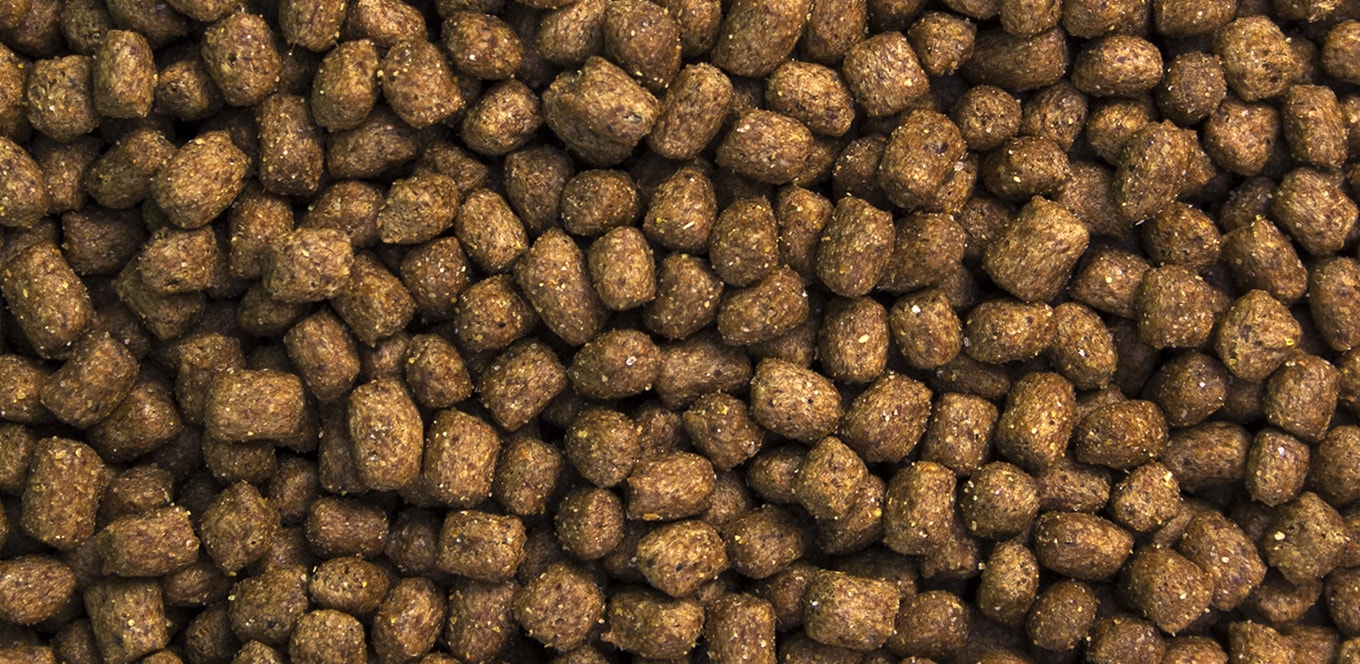

Your puppy is changing in so many ways. In fact, the most rapid growth will take place in these first months of his life. His immune system is developing. Bones are growing. Muscles are getting stronger. All of this requires a nutrient-dense diet, formulated to support a medium-breed puppy's rate of development. To make sure your puppy is getting optimal nutrition to protect and maintain health and well-being, here are some key points to keep in mind.
From the time your puppy is weaned until 4 months of age, you should feed your puppy two to three meals a day, with the daily amount based on the guidelines of the food label. After 4 months of age, he should be fed twice a day on a regular schedule. Always have fresh water available.
Research shows that puppies need up to twice as much energy as adult dogs. Dramatic growth at this stage means your puppy requires an energy-rich, nutrient-dense complete and balanced diet. Puppies also require more protein than adult dogs. High-quality animal-based protein will help your puppy create new body tissue.
Not all puppies have the same nutritional needs. Medium-breed puppies actually have slightly higher metabolism rates per pound than large-breed puppies. And your puppy will reach his mature adult weight at about 12 months, sooner than larger breeds that reach adulthood as late as 24 months. Your puppy needs protein, fat, calcium, and phosphorus to support growth and development of bones, muscles, and other tissues. So giving him a food that supports his medium size is the easiest way to help make sure he's getting the right balance of nutrients for his metabolism and growth rate.
Remember, puppies have small stomachs. Make sure his food is nutrient-dense so he'll get a complete and balanced diet even though his stomach can only handle what seems like a small volume of food.
Aside from energy and protein, there are other important nutrients and ingredients vital to your puppy's diet:
These are important building blocks of nutrition. Look for them when you choose dry or canned dog food and when you select treats.
A medium-breed puppy reaches adult weight by about 12 months. You can begin feeding an adult dog food at this time, such as IAMS™ ProActive Health™ Adult MiniChunks. Your dog might not welcome the change at first, but don't worry. You can help ease the transition by gradually introducing the adult food. Try mixing 25% of the new food with 75% of his puppy food, then gradually change the proportions over the next three days until he's eating 100% adult food.



No two dogs are alike. So when choosing your pet's food, you'll want to take into consideration the dog's breed, size, age, weight, and lifestyle.
Full growth will happen at around 1 to 2 years, with the exact age determined by your dog's breed—small-breed dogs mature faster than large-breed dogs. “Grown dogs, especially ones who are more athletic, will start to eat more quantities in one feeding,” says Madan Khare, DVM. “You want to limit his feeding to one or two times a day, depending on his activity level.” Exact quantities should be determined by consulting your vet or by reading the package labels (just remember to split a daily serving). Mature dogs are prone to obesity, so it is necessary to feed them carefully. in half if you choose to feed the dog twice a day.
When transitioning your dog from puppy food to premium adult food—such as IAMS™ ProActive Health™ Adult Dog Food —you want to do it gradually. “Never change a dog's diet abruptly,” Khare says. Here's a schedule for transitioning your pet from puppy food to an adult dog food.
Day 1: Fill your dog's bowl with 75% puppy food and 25% premium adult dog food.
Day 2: Use 50% of each food.
Day 3: Feed your dog a mixture of 75% premium adult food and 25% of your current dog food.
Day 4: Give him 100% premium adult dog food.
Daily exercise and a diet packed with high-quality protein from chicken, lamb, or fish and essential nutrients will keep him happy and healthy throughout his lifetime. Premium dry pet food has all of the daily nutrition your pet needs. It helps promote healthy teeth and gums, too.
“When it comes to feeding your dog human food, I have three words,” Khare says. “No. No. No.” Interfering with your pet's food regimen by adding higher-fat and higher-calorie human foods can disturb the animal's digestive system. When it comes to biscuits, Khare recommends looking for ones low in sugar, salt, and fat. 'You have to keep in mind that you're adding calories to his daily diet, so offer them in moderation,” Khare says. Finally, make sure your pet has a clean bowl of fresh water at all times.